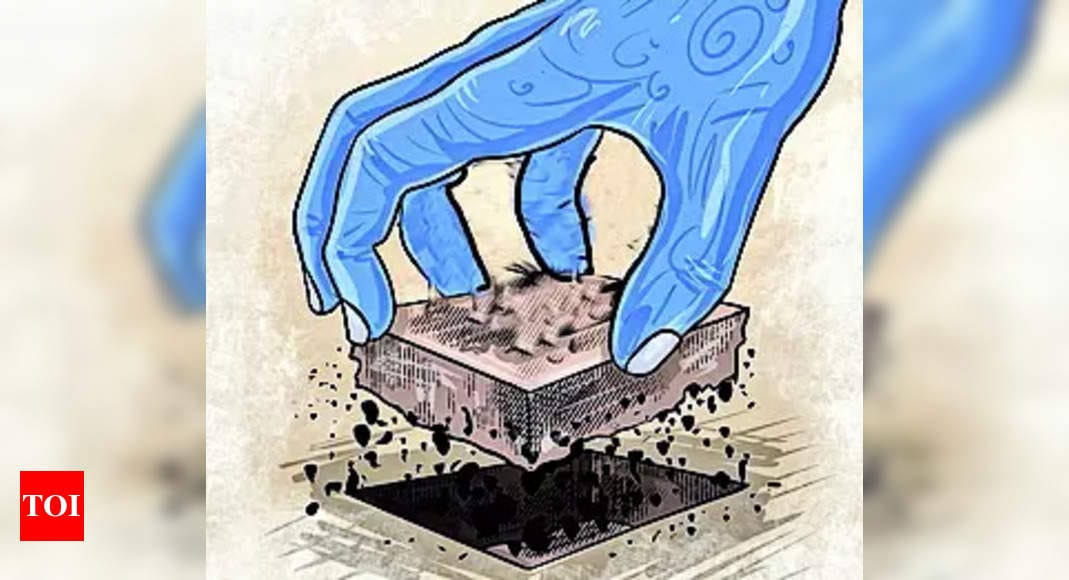Gujarat High Court Upholds Constitutional Validity of Anti-Land Grabbing Law | Ahmedabad News - Times of India

Source: The Times of India
Ahmedabad: The Gujarat high court on Thursday upheld the constitutional validity of the Gujarat Land Grabbing (Prohibition) Act, 2020 and said it is not repugnant to central laws and therefore presidential assent was not required.
The bench of Chief Justice Sunita Agarwal and Justice Aniruddha Mayee rejected numerous petitions filed over three years challenging the 2020 anti-land grabbing laws on various grounds.One of the arguments put forth was that the new law was contradictory to provisions of other laws and that it also violates provisions of the Constitution guaranteeing fundamental rights. The law was enacted without presidential assent, mandatory under Article 254 of the Constitution. The judges said the Land Grabbing Act is not repugnant to central laws and therefore cannot be hit by Article 254 of the Constitution for lack of presidential assent. They also clarified that the law does not violate the basic structure of the Constitution.
The bench read out its conclusion from its judgment, "We do not find any good ground to hold the Gujarat Land Grabbing (Prohibition) Act, 2020 and its allied rules unconstitutional. Considering the pith and substance of the Land Grabbing Act, we hold that it is relatable to entries 18, 64 and 65 of List II of the Schedule VII (of the Constitution of India) and as such there is no question of repugnancy to central laws such as the Limitation Act or CPC or CrPC or Transfer of Property Act, Specific Relief Act or the Evidence Act." The judges cited orders from other high courts which have upheld similar laws against land grabbing in Assam, Andhra Pradesh and Karnataka.
Among all the challenges to this law that were rejected, the judges mentioned rejection of the argument of disproportionate and excessive punishment for land grabbing in Gujarat, which is 10 years in prison.
The HC said that prescribing punishment is better left to the wisdom of the legislature, "The wisdom of the legislature must be given due regard and respect, it is for legislators, being representatives of the people, to decide as to what is good or bad for them. The court cannot sit over its wisdom. Consequently, the 2020 Act cannot be said to be ultra vires on the aspect of proportionality. The Act cannot be challenged on the basis of harsh and disproportionate punishment. We hold that the Act is not violative of Articles 13, 14, 19 and 21 of the Constitution."
After the court rejected the petitions, the lawyers requested that the applicability of the law be stayed till July 30.
It was submitted that proceedings in cases before the bench were stayed by the HC for some time. If all the petitioners were to be prosecuted suddenly, it would create a chaotic condition.
The lawyers also requested an assurance from the state govt not to act against the petitioners, but the advocate general refused to make any statement to this effect. The bench rejected the request for the stay.
